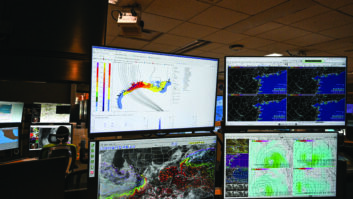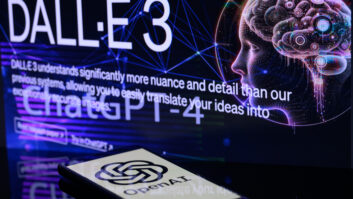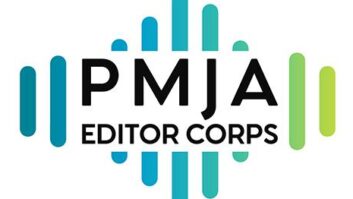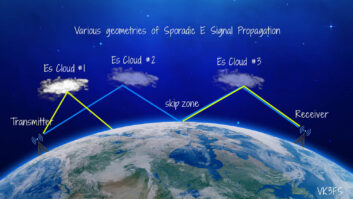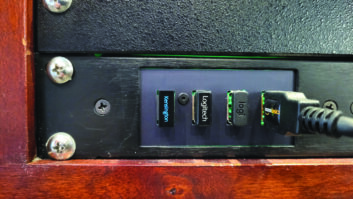Radio World’s “Guest Commentaries” section provides a platform for industry thought leaders and other readers to share their perspective on radio news, technological trends and more. If you’d like to contribute a commentary, or reply to an already published piece, send a submission to [email protected].
The author is the founder of Information Station Specialists — theRADIOsource.com, which makes specialized components for broadcasters and Traveler’s Information Stations for government agencies.
On April 8, the moon’s shadow will slice an arc across North America from Mexico to Maine. Some 3.7 million eclipse enthusiasts are expected to crowd that 120-mile-wide corridor to view “totality” before turning to depart in a mass exodus.
But no one will part this sea of vehicles. Gridlock is inevitable. First-responders expect to have difficulty reaching those who need help. It’s anticipated that food, fuel and medical services could be in short supply. Three counties in Texas have already issued local states of emergency, preparing for a doubling of their populations in the days around the event.
But worse could be the communications gridlock. The eclipse will happen where it happens, without regard for cell-tower-capacity. Cellular services — especially in lower-capacity areas — may overload, leaving both travelers and residents without the ability to make calls. Cellular is the gateway to the internet, especially for those on wheels. When it is maxed out, everything from the delivery of wayfinding assistance, to weather warnings, to emergency notices could be impacted.
Broadcasters have a unique opportunity to stand in the gap. That fact is recognized even internationally, with the U.N.’s UNESCO agency recently identifying broadcasters as a “vital lifeline” and encouraging the worldwide “protection of emergency radio frequencies for the public dissemination of vital information.”
Closer to home, this reality is amplified by bipartisan support for the “AM for Every Vehicle Act,” requiring all automobiles sold in the United States to have AM radio receivers conspicuously in their dashboards. The bill’s sponsor, Rep. Josh Gottenheimer of New Jersey, has predicted, “It’s on its way to becoming law.” Until passage, Gottenheimer is calling on the National Highway Traffic Safety Administration to require automakers to label vehicles without AM receivers as “unsafe in certain emergencies.”
Local public safety officials see the need for communications resiliency clearly. Four counties near Indianapolis — Hendricks, Morgan, Shelby and Boone — have stepped up, instituting their own Travelers Information Radio Stations (TIS) not only for the eclipse, but in anticipation of future wireless service outages.
Morgan County has installed a higher-efficiency AM antenna to bolster their signal coverage over Interstate 69, which parallels the eclipse-path through the county. Shelby and Hendricks Counties will also stream their TIS radio programming to the internet: PCs and network-connected devices are less likely to be affected by service volume than mobile phones.
Disruption of wireless service is more often the result of a natural disaster than an eclipse. The recent lengthy outage on Maui is a case in point. But a cyberattack due to malicious activity or war could be way worse. It could eclipse not only the wireless infrastructure but the internet itself, presenting the potential to be dramatically more devastating. Its duration, its scope and its geography could be massive in comparison.
Just one month ago, a congressional committee was reminded that bad actors in other countries are targeting our infrastructure, intending to cause “real-world harm” to U.S. citizens. Jen Easterly, director of the U.S. Cybersecurity and Infrastructure Security Agency (CISA), advised the committee that Americans need to prepare for an unexpected cyberattack.
Consider how your broadcast company, your safety agency and you yourself can aid in awareness and preparation. Unlike a natural phenomenon, this approaching shadow is not one that can be predicted to the second. But, as our leaders are advising, it can be predicted.

